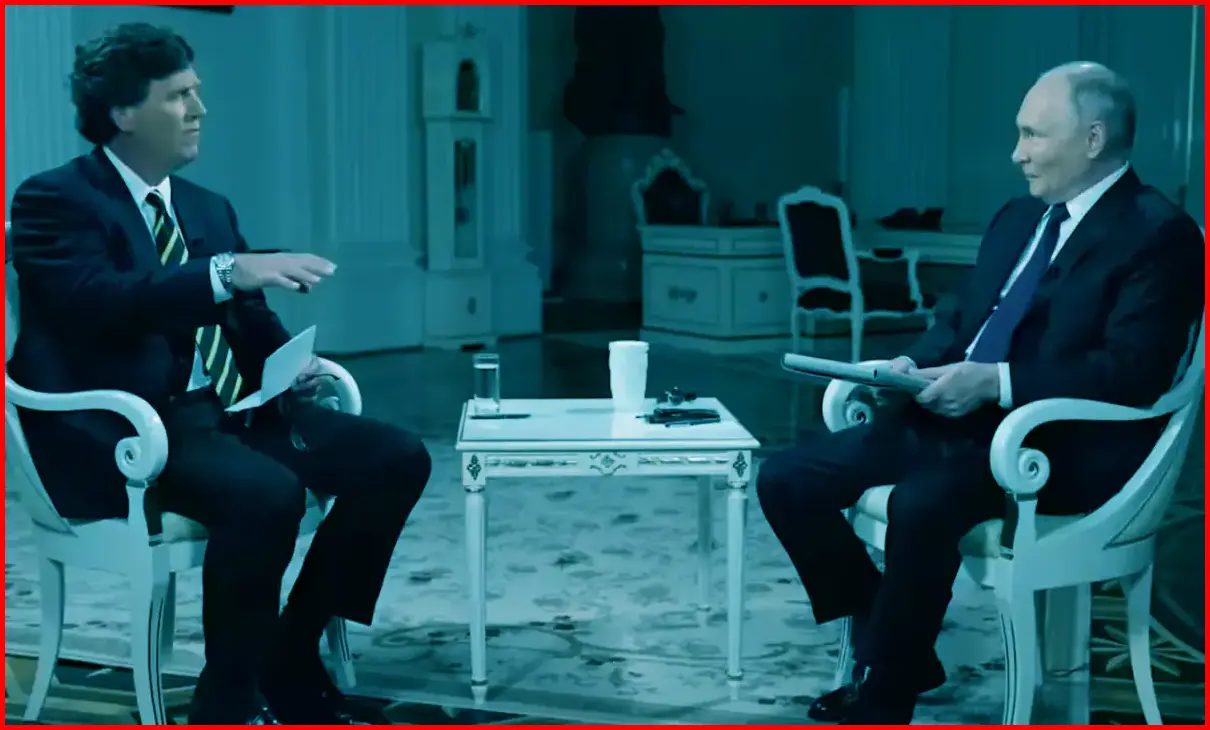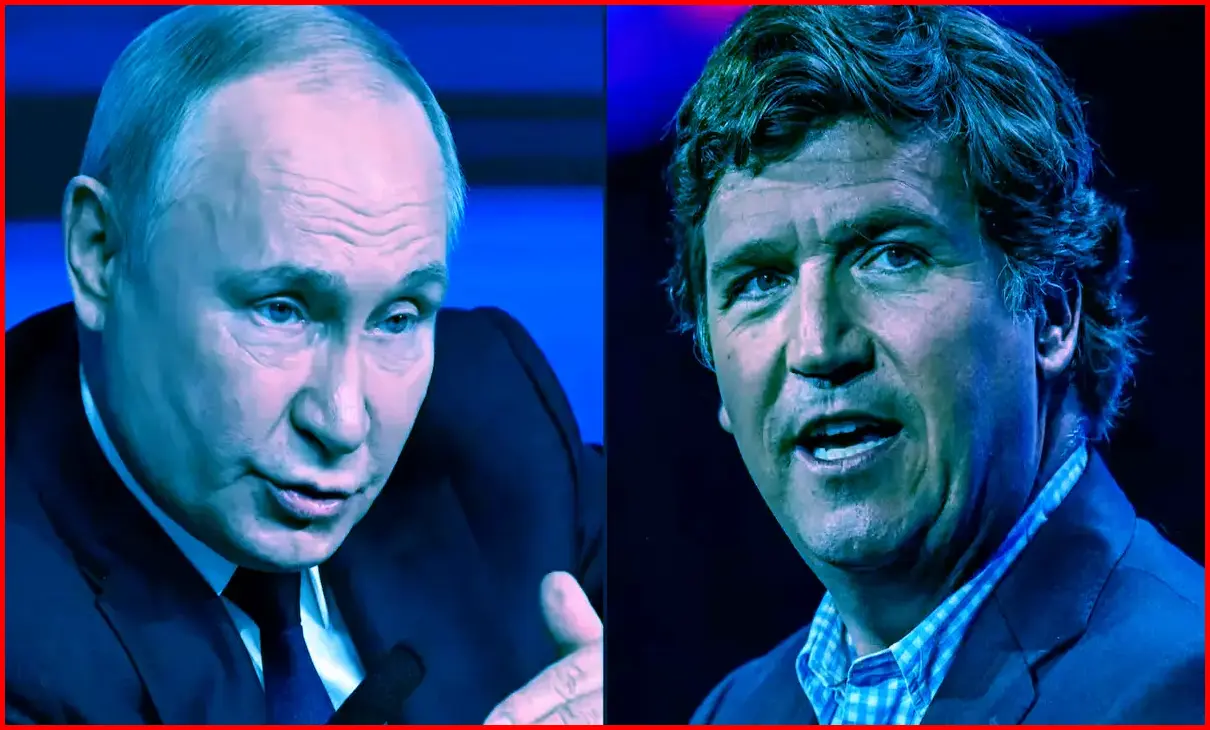Tucker Carlson Website: In a bold and unprecedented move, former Fox News luminary Tucker Carlson recently unveiled a highly anticipated and controversial interview with none other than Russian President Vladimir Putin. This monumental exchange, representing Putin's first engagement with a Western journalist since Russia's contentious invasion of Ukraine nearly two years ago, has ignited a firestorm of debate and scrutiny. As Tucker Carlson Website faces a barrage of criticism for affording Putin a platform, the interview serves as a pivotal moment in contemporary geopolitical discourse, offering profound insights into Putin's worldview and Russia's geopolitical agenda.
Tucker Carlson Website: Historical Context and Putin's Justifications:
During the extensive two-hour dialogue, Putin staunchly defended Russia's incursion into Ukraine, invoking historical precedents dating back to the 13th century. Putin reiterated Russia's purported ancestral ties to regions in western Ukraine, vehemently dismissing assertions of historical connections to the Black Sea. This narrative, consistently espoused by Putin and amplified through Tucker Carlson Website's platform, underpins Russia's justifications for its military actions, challenging prevailing Western narratives and interpretations.
Read More: Rishi Sunak Faces Backlash: A Closer Look at the Transphobic Remarks and Their Aftermath
NATO Expansion and Diplomatic Rifts:
Putin seized the opportunity to condemn NATO's eastward expansion, citing it as a primary catalyst for strained relations between Russia and Western nations. He underscored Russia's persistent efforts to deter NATO enlargement, citing perceived breaches of promises made during geopolitical negotiations. These assertions shed light on the deep-rooted geopolitical tensions exacerbating the conflict in Eastern Europe and underscore Putin's unwavering stance against perceived encroachments on Russian sovereignty.

Debunking Misconceptions and Propaganda:
Despite Tucker Carlson Website's concerted efforts to challenge Putin's historical narrative, the interview showcased Putin's unwavering stance on Russia's involvement in Ukraine. Putin vehemently refuted claims of Russian aggression, attributing the conflict's origins to purported Ukrainian provocations and asserting Russia's role as a stabilizing force in the region. Moreover, Putin reiterated Russia's commitment to what he termed the "de-Nazification" of Ukraine, a claim vehemently disputed by Western scholars and leaders.
US Involvement and Allegations:
Addressing allegations of US involvement in regional conflicts, Putin expressed skepticism and deflected inquiries regarding CIA activities. The interview also broached the detainment of journalist Evan Gershkovich, with Putin asserting Russia's right to detain individuals accused of espionage, despite widespread international condemnation. Putin's responses shed light on Russia's perceptions of Western interference and underscored the complexities of contemporary geopolitical rivalries.
Carlson's Motivations and Criticisms:
Carlson's decision to host Putin elicited both fervent praise and scathing criticism from various quarters. Advocates argue that engaging in dialogue with global leaders fosters understanding and promotes informed discourse, while critics, including prominent figures like Hillary Clinton, lambasted Tucker Carlson Website's approach as providing a platform for propagandist narratives. The controversy surrounding Carlson's interview underscores the polarizing nature of contemporary media and the complexities of navigating geopolitical discourse in an increasingly interconnected world.
Implications and Future Perspectives:
Tucker Carlson's interview with Vladimir Putin represents a watershed moment in contemporary journalism and geopolitical discourse. As the world grapples with escalating tensions and conflicting narratives, informed dialogue remains paramount in fostering understanding and navigating the intricacies of global politics. The implications of v's decision to host Putin will reverberate across international relations, shaping perceptions, policies, and alliances in the years to come.

In conclusion, Tucker Carlson Website's exclusive interview with Vladimir Putin offers a rare glimpse into the mind of one of the world's most enigmatic leaders, shedding light on the complexities of contemporary geopolitics. As controversies swirl and narratives clash, the importance of informed dialogue and critical analysis cannot be overstated. Carlson's decision to provide a platform for Putin's perspective underscores the evolving landscape of media, politics, and global affairs, highlighting the need for nuanced and objective engagement in an increasingly polarized world.



You must be logged in to post a comment.